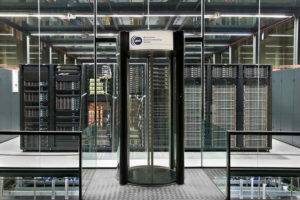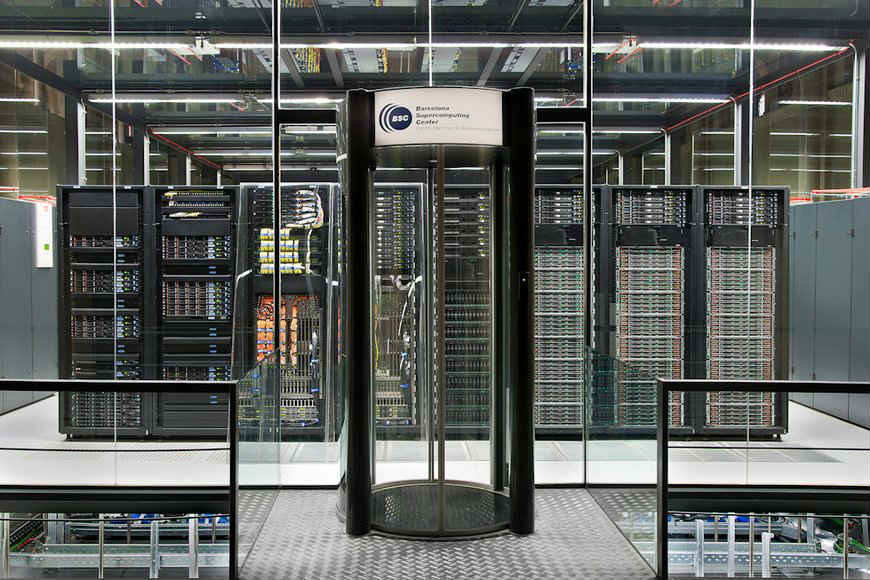
MareNostrom 4 Supercomputer
The MareNostrum 4 supercomputer at the Barcelona Supercomputing Centre has been named the winner of the Most Beautiful Data Center in the world Prize, hosted by the Datacenter Dynamics Company.
Aside from being the most beautiful, MareNostrum has been dubbed the most interesting supercomputer in the world due to the heterogeneity of the architecture it will include once installation of the supercomputer is complete. Its total speed will be 13.7 Petaflops. Its main memory is of 390 Terabytes and it has the capacity to store 14 Petabytes (14 million Gigabytes) of data. A high-speed network connects all the components in the supercomputer to one another.
There are 15 prizes in different categories, besides the prize for the most beautiful data centre, which is elected by popular vote. MareNostrum 4 competed with such impressive facilities as the Switch Pyramid in Michigan, the Bahnhof Pionen in Stockholm or the Norwegian Green Mountain. BSC supercomputer has prevailed for its particular location, inside the chapel of Torre Girona, located in the North Campus of the Universitat Politècnica de Catalunya.
The awards ceremony took place on December 7th in London and both Mateo Valero, BSC Director, and Sergi Girona, Operations department Director, received the prize.
MareNostrum is the generic name used by BSC to refer to the different upgrades of its most emblematic supercomputer, the most powerful in Spain. The first version was installed in 2005, and the fourth version is currently in operation.
MareNostrum 4 began operations last July, and according to the latest call of the Top500 list, it ranks the 16th position among the highest performing supercomputers. Currently, MareNostrum provides 11.1 Petaflops of processing power – that is, the capacity to perform 11.1 x (1015) operations per second– to scientific production and innovation. This capacity will be increased soon thanks to the installation of new clusters, featuring emerging technologies, which are currently being developed in USA and Japan.
MareNostrum 4 has been funded by the Economy, Industry and Competitiveness Ministry of the Spanish Government and was awarded by public tender to IBM Company, which integrated into a single machine its own technologies together with the ones developed by Lenovo, Intel and Fujitsu.




